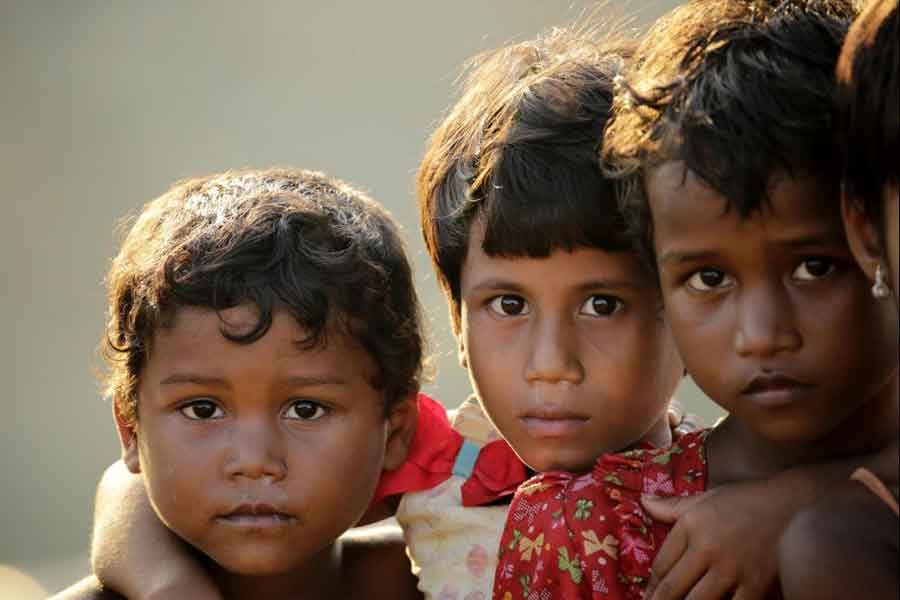Recently the governments of Bangladesh and Myanmar have signed an agreement on repatriation of the Rohingya people who have come to Bangladesh since October, 2016. Academics, intellectuals, politicians, diplomats and activists argue whether the interest of Bangladesh is protected in the said agreement. The press conference of the Foreign Minister Mr. AH Mahmood Ali, on his return from Myanmar, gave the impression that Bangladesh anyhow wants to repatriate the Rohingyas from Bangladesh. However, this strategy may not be in favour of Bangladesh in the long run.
The Rohingyas have been coming to Bangladesh in different phases. Their rights are systematically violated in Myanmar over the past decades. Myanmar's security forces conduct ethnic cleansing operation against Rohingyas on lame excuses and the Muslim minority people have to flee to Bangladesh to save their life. It has been happening over the last 40 years. Mass intrusion by the Rohingyas causes socio-economic, security and environmental problems for Bangladesh. The international community only expresses concern about the issue when the situation goes from bad to worse. Myanmar repatriates, if any, fewer Rohingyas than they actually come. Also, the Rohingyas are reluctant to return to Myanmar because they fear their life might be endangered there again. So it is obvious that mere repatriation is not a durable solution.
Currently, Bangladesh has sheltered more than 1.0 million Rohingyas and among them a sizeable portion is children (As per the UN, 60 per cent of the Rohingyas are children and among them 30 per cent are below five years, 7.0 per cent are below one year and 5.0 per cent Rohingya families are headed by children). Most of these children are shocked, scared, distraught and traumatised. This is an extraordinary humanitarian catastrophe, and children especially orphan children are disconsolate. Initiatives should be taken to counsel them to overcome the mental trauma. Otherwise, the most barbarous and brutal incidents they experienced may haunt them as a nightmare. The Bangladesh government and different national and international organisations like the Save the Children, United UNICEF (Nations Children's Fund), USAID, UNHCR (United Nations High Commissioner for Refugees), BRAC, CFS Centre and Dhaka Ahsania Mission have taken some special measures for the well-being of Rohingya children. The government has taken up a project to construct 'Shishu Palli', a special residence for orphan Rohingya children. Arrangement for education, health care, counselling, recreation, etc has been made for the welfare of the Rohingya children.
But what about their future after their repatriation in Myanmar? Myanmar is a developing country and Rakhine state is the least developed state there. The local administration, inhabitants of Rakhine and Myanmar authority are hostile to them. So, mere repatriation of the Rohingyas, including their orphan children, will not help their rehabilitation. They are not expected to get social protection from the Myanmar government. Their minimum rights and needs entitled under the Universal Declaration of Human Rights, 1948; Convention on the Rights of Children, 1989; Optional Protocol to the Convention on the Rights of Child on the Involvement of Children in Armed Conflict, 2000, etc., might not be provided in Myanmar.
As many as 36,673 orphan children were enlisted in 12 Rohingya camps in Ukhiya and Teknaf of Cox's Bazar by November, 2017. Under a special rehabilitation project they are divided into seven categories: living alone; living with mother; living with relatives; living without any shelter; living with siblings; living with any adult who is not a relative and under other circumstances. The government and aid agencies are working together here. However, international human aid organisations are unwelcome in Myanmar. The authority there put many embargoes and restrictions on humanitarian operations by international organisations in Rakhine state.
Family environment and atmosphere of happiness, love and understanding are essential for full and harmonious development of the child. On the other hand, child personality is seriously affected if children are brought up in an atmosphere of violence, conflict and tension. At present, Northern Rakhine state of Myanmar is not a child-friendly and safe place for the sound growth of children. Also life in different Rohingya camps, which are generally restricted places, is harmful for their sound growth.
Under the circumstances, adoption of those children by interested citizens of developed countries is a good alternative. In this perspective, the Convention on Protection of Children and Co-operation in Respect of Inter-country Adoption, 1993 provides details procedure for inter-country adoption. From a close scrutiny of the demography of the inter-country adoption, it is found that campaigns for international adoption have increased after devastating natural catastrophes and wars. In fact, adoption of orphan children is not a new phenomenon. Major adopting child-receiving countries i.e. the United States of America, Spain, France, Italy, Canada, Netherlands, Sweden, Norway, Denmark and Australia may prefer to adopt Rohingya orphan children. The Bangladesh government should launch a campaign for this purpose.
The writer is an Advocate and Research Officer (Law) at Bangladesh Institute of Law and International Affairs (BILIA).


